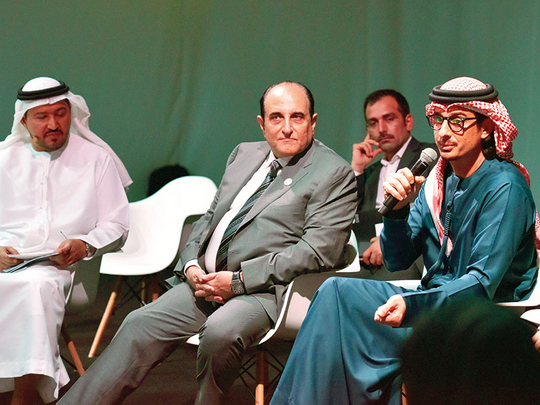
Abu Dhabi: When a housemaid is jumping off a high-rise apartment, her mistress is taking a video on her smart phone instead of trying to help her!
The video of this real-life incident in Kuwait a few months ago went viral on social media.
Another viral video shows a woman crying for help from the window of her high-rise building, while being entangled in a deadly fire, but onlookers are taking her video, instead of calling emergency number to help her.
People posting such misfortunes of others online are not necessarily vicious, according to experts who probed this sadistic social media behaviour at a round-table in the capital on Monday, which began with screening of four gruesome videos.
Seventy five per cent of respondents in a survey revealed that they shared such videos and 55 per cent of them regretted it later, said a senior executive of telecom operator du that organised the event.
Thoughtless
“This means they are not vicious. They don’t think before they post such a video,” said Abdul Wahed Juma, executive vice-president of brand and corporate communications at du, quoting a du survey on social media behaviour, participated by around 15,000 residents in the UAE recently.
Speaking to Gulf News, he said people take such videos to attain the privilege of being the first one to share something shocking or unique.
Some people want to be known as a person who always shares unique real-life incidents such as accidents.
“Some of such contents are positive when they share incidents related to weather etc which could warn others. But when you share someone’s pain, think of that person as your brother, sister or you yourself,” Juma said.
He said lack of such thinking [awareness] prompt people to share horrific videos.
To raise the awareness, du has introduced second phase of a campaign titled #postwisely whose theme is a touching question: “If it were your pain, would you share it”?
The campaign gains relevance as there was a perceived increase [57 per cent] in negative posts during the past year, according to an Ipsos research commissioned by du, said Osman Sultan, CEO of du.
“We are in an era where our digital and real lives are not so clearly demarcated. While a lot of prominence is given to having a digital footprint and engaging with audiences online, it is also pertinent that we maintain a moral compass in practising discretion,” he said.
However, he said people should not blame technology for bad social media behaviour.
“We are seeing [rapid] changes [due to technological advancements]. Things will get adjusted as we see in our normal life,” Sultan said. He pointed out that some people take time to get acquainted with evolving behaviours in urban life and the same is the case on social media.
“Today we are obliged to adapt much more quickly. A lot of these people, who are sharing such videos, are doing it without any malice [but just for recognition], the CEO said.
A psychologist said seeking attention and acknowledgement from others is the main motive behind sharing of shocking videos. Farheen Jeelani said the remedy should start from home where children should get due recognition. “If they don’t get attention from their own family, they will seek it outside,” Jeelani said.












